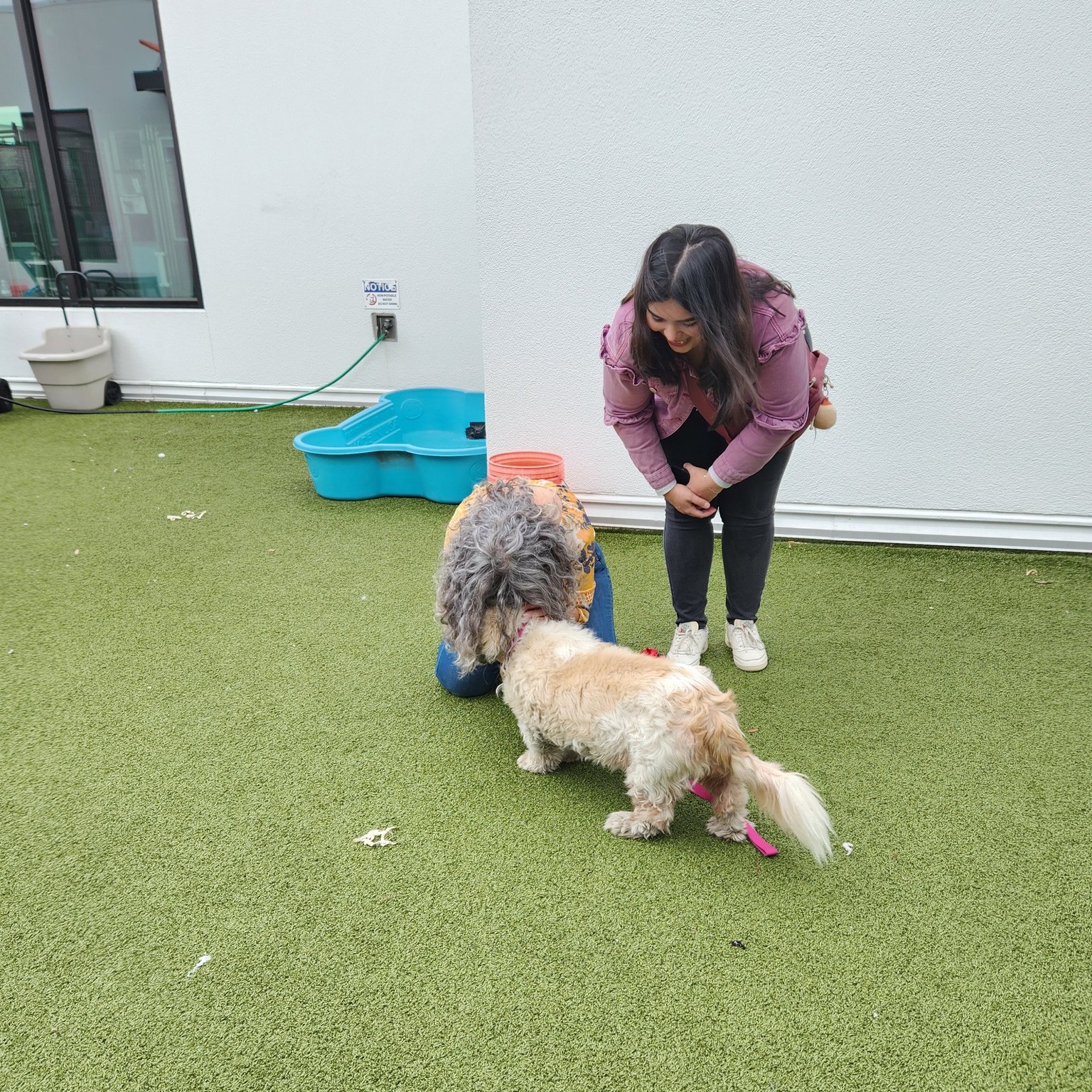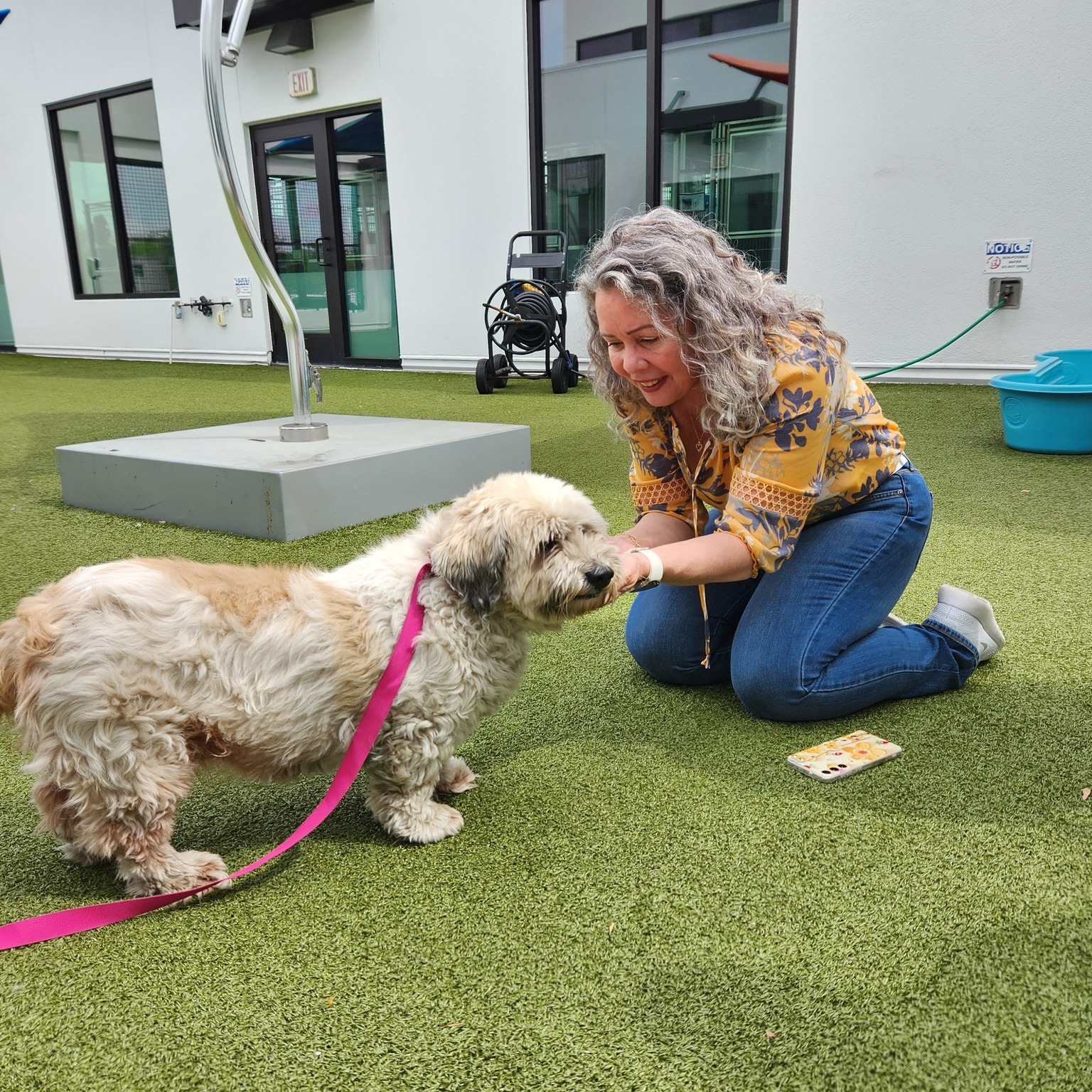A family's unwavering hope — and commitment to their dog's microchip — cultivated a pawsitively adorable reunion, 10 years in the making.
The Florida crew had lost their pup Cleo in 2014 when the curious Cockapoo ran away from home, and despite having never seen her again, her family still continued to update her microchip in all the years since, the Humane Society of Tampa Bay said in a Facebook post.
As time passed, many other pet owners may have thought to give up hope they'd ever see their furry friend again, but Cleo's family held onto a sliver of faith, even when they moved to Miami. And last week, those years of determination finally paid off when the now 14-year-old Cleo arrived at the HSTB.
"We were hoping for a happy ending and for her to be reunited with her owners, but we did not foresee the joy that her story brought!" the group said on Facebook.

A check of the stray's microchip led the HSTB crew to Luisa, who was in disbelief when she was told her long-lost pet had been found just as the rescuers were in disbelief that Cleo's microchip had been kept updated all that time.
On Saturday, Luisa drove the five hours from her new Miami home to Tampa Bay, where the long-awaited reunion took place. The HSTB shared photos of the emotional moment, featuring a seemingly smiling Cleo.
"This shows the power and importance of the microchip and never losing hope," the HSTB said in the post.

A microchip works by transmitting an identification number to a scanner that is passed over it, the American Veterinary Medical Association says. That identification number is linked to a database that contains the information a pet owner chooses to provide when the chip is registered or when a person updates it, like in Cleo's case.
Though the devices do not contain GPS or tracking abilities, they're still considered one of a pet owner's best bets in finding a lost animal.
An AVMA study of more than 7,7000 strays in 23 states found microchipped lost dogs were returned to their owners at more than double the overall rate of stray dogs, while the rate differential for cats was even more dramatic. The most common reason it found microchipped animals weren't returned to their owners was that the database contained incorrect or disconnected contact information.
The AVMA recommends all pets have microchips for permanent identification purposes, but it also says nothing replaces a collar with up-to-date identification tags. If the collar becomes lost or removed, however, the microchip might be the only way to find the animal's family.
Because of this, it recommends making sure your microchip is always registered with up-to-date information and asking your veterinarian to scan it at least once a year to make sure it's functioning properly.
SEE MORE: Cat reunites with family after spending 100 days in Maui wildfire zone
Trending stories at Scrippsnews.com


